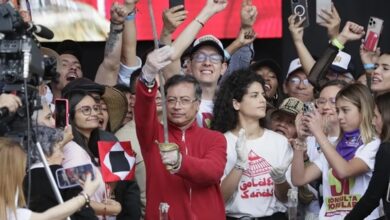Bolsonaro Uses Fear And Lula da Silva Nostalgia In A Divided Brazil
These are some of the outstanding proposals after a debate in which the disqualifications between Jair Bolsonaro and Lula da Silva were the center of attention

Photos: Gustavo Lima, Ricardo Stuckert
Latinamerican Post | Luis Angel Hernández Liborio
Listen to this article
Leer en español: Bolsonaro agita el miedo y Lula da Silva la nostalgia en un Brasil dividido
On August 28, the first presidential debate in Brazil organized by the media was held. In it, Jair Bolsonaro and Lula da Silva, the main candidates, showed their differences and made the debate a battlefield in which mutual disqualifications were the common denominator. Let us see some of their proposals as they make their way to the presidency.
Lula in defense of his government
As expected, Lula da Silva's main banner is his previous term (2003-2010), the results of which he hopes will support his current candidacy. In 2018, he was unable to run in the elections due to the judicial process for which he was imprisoned. By relying on his previous government, Lula promises to resume many of the policies he applied more than a decade ago, where social programs stand out.
The fundamental axis of his presidency has been and will undoubtedly be his policies towards the poor population, as he himself has declared. People living with hunger in the country in 2022 amount to 33.1 million according to the Brazilian Network for the Search of Food and Nutritional Sovereignty and Security, a figure that has returned Brazil to the FAO Hunger Map, which it had left during Lula's government.
The former president has emphasized how poverty has grown and how Bolsonaro's policies have been insufficient. The president even eliminated the Bolsa Família created during the Lula government that benefited almost 60 million Brazilians with financial support. During his arrival mandate, Bolsonaro reduced the funds until he disappeared, but the pandemic forced him to restore it, although with a new name: Aid Brazil. Thus, both candidates agree to maintain this support for families in the event of reaching the presidency.
Lula has also taken the opportunity to make proposals on the main issues on which Bolsonaro has been criticized. One of them is on gender and diversity issues where Lula da Silva has shown his support. The state apparatus has also been mentioned by the former president, who proposes to strengthen state companies and improve regulations on environmental issues, especially when it comes to the Amazon and mining, something in which Bolsonaro has been poorly qualified. At the request of one of the leaders of the Workers' Party, Lula is also considering the possibility of establishing a universal basic income that would establish a paradigm in his country.
Bolsonaro, fear as a weapon
It seems that the current president will play the fear card, similar to what happened in Argentina, Mexico, and Colombia in their most recent elections. The right in these countries bet on the population's fear of "Venezuelanization ", however, the electoral results showed that said campaign was no longer as effective as it was in the past decade. Bolsonaro has taken the risk, in the debate he emphasized Lula's relationship with Alberto Fernández, Gabriel Boric, Gustavo Petro, and Daniel Ortega whom he attacked for the policies applied in their respective countries, and that Bolsonaro affirms that Lula would apply in Brazil.
Polls show Bolsonaro (32%) below Lula (47%) by 15 percentage points, according to the latest Datafolha result from last August. So Bolsonaro's strategy is to prevent Lula from getting dangerously close to the 50% with which he would win in the first round. Bolsonaro bets on his electoral base that supports the prohibition of abortion, weapons, and the strategy against drug trafficking that Lula has also promised to change.
You can also read: Petro and Boric: a Latin American Left Different from the Socialism of the 21st Century
Can the other candidates tip the scales?
Far from the leaders are Ciro Gomes (PDT – 7%), Simone Tebet (MDB – 2%), Soraya Thronicke (União Brasil) and Felipe D'Avila (NOVO), the last two with statistical 0% in the survey of Datafolha. The four also participated in the debate, only Gomes and Tebet show percentages that could be decisive, but both could tip the balance towards Lula da Silva, mainly Gomes who was his Minister of National Integration. Although Gomes has distanced himself from Lula and referred to him as a "snake charmer", in practice he is more likely to support the former president than Bolsonaro.
Gomes is critical of both leaders, blaming them for the current situation in Brazil. However, Lula was open to integrating the PDT as part of his government, giving Gomes the opportunity to repair the "damage" done in 2018 where, in a similar situation, he did not show his support for the PT candidate who could have prevented the Bolsonaro's victory. Gomes calls for the great fortunes to pay taxes, a universal income, and a series of strategic reforms. For her part, Tebet stands up with a feminist agenda that does not fit with Bolsonaro and that ultimately benefits Lula.




